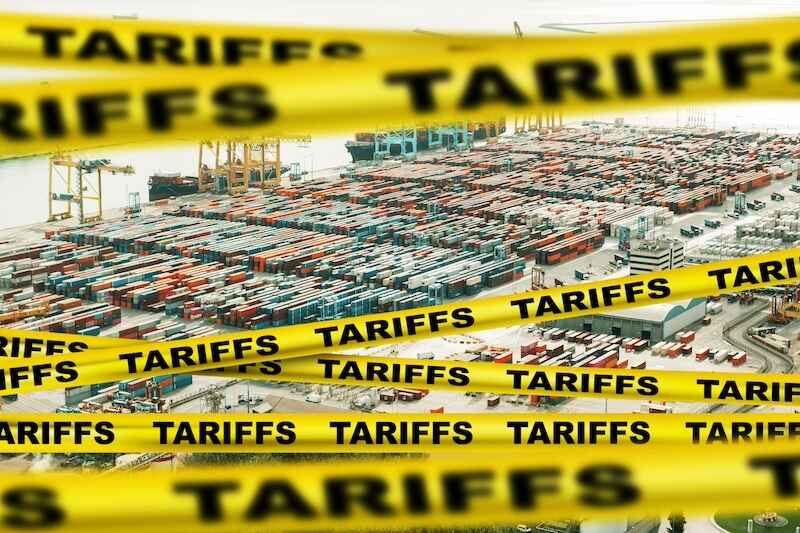How You Can Win as America and China Battle It Out Over Tech
Shah Gilani|July 7, 2023
From America’s stealth bombers and MQ-9 Reaper drones to China’s hypersonic generator, which is potentially capable of turning gas into plasma-powered hypersonic weapons, the common denominator is technology. And the common denominator in technology is semiconductor chips.
Chips are used in everything from artificial intelligence (A.I.), advanced defense equipment, robotics and autonomous systems (RAS), Internet of Military Things (IoMT), cyber warfare, immersive technologies, additive manufacturing, big data, and analytics.
Now, with America and China increasingly at odds over chips, rare earth materials that make advanced chips possible, and access to America’s two biggest cloud resources – Microsoft’s Azure and Amazon’s AWS – chances are that testy relations could turn into outright decoupling, then into saber-rattling, and ultimately into open conflict.
The problem is basically that the two countries’ relationship in this industry is symbiotic.
America leads the world in chip development, with companies like Nvidia Corp. (NVDA), Intel Corp. (INTC) and Advanced Micro Devices, Inc. (AMD) continually churning out new designs to meet the world’s technological needs.
But China leads the world in chip manufacturing. As an example, Taiwan Semiconductor Manufacturing Co. (TSM) is responsible for 60% of global foundry output. And China also controls many of the natural resources used in the creation of the chips that American companies design.
This tension sets the stage for what I’m calling the “chip wars” between China and the U.S., and one of the potential outcomes is nothing less than an international face-off over Taiwan.
Let me break it down for you: how quickly relations are deteriorating, what could happen next, and how you need to play it.
This Is the Best Example of the “Chip Wars” in Progress
I’ll start by talking about Nvidia just so you can see what I mean.
Nvidia, the leading U.S. developer of chips used in artificial intelligence, is a darling of the stock market, having risen an astounding 209% in 2023 to $439.9 on June 20, 2023. It outsources the manufacturing of its chips mostly to TSM. Not only that, NVDA generated about 22% of its trailing twelve-month revenues of $25.88 billion from China.
These dynamics place Nvidia in both the U.S. government’s crosshairs and China’s strategic sights. Rumors were flying this week that the Commerce Department is considering banning Nvidia from selling its chips in China.
That rumor was floating above more serious consideration, attributed to White House sources, that the U.S. wants to cut off China from access to Azure and AWS, the two biggest cloud computing services in America where artificial intelligence applications can be created, housed, transferred or deployed.
In response to those rumors, on July 3rd (not coincidently the eve of America’s Independence Day celebrations), China issued export restrictions on two rare earth materials, gallium and germanium. China control 95% of the world’s production of gallium and 65% of germanium. Both materials are essential in advanced semiconductor chips, the kind the U.S. is the world leader in developing.
And the bombastic rhetoric between China and the U.S. is intensifying. Most recently, while Secretary of State Anthony Blinken was meeting with his counterpart in China, President Biden referred to Chinese president Xi Jinping as a “dictator” during a speech in California, stoking the ire of Xi and Chinese diplomats in the U.S.
Instead of tamping down Chinese protestations, Blinken, in a CBS Face the Nation interview immediately on his return from China, was asked if he thought President Xi Jinping, was a dictator. His answer was essentially that what President Biden called Xi was what the President of the United States thought, and he agreed.
Moreover, the U.S. has also taken serious steps to reduce its deficiencies on the manufacturing side. The government recently allocated $7 billion out of the $39 billion CHIPS Act to TSM, to build a manufacturing foundry in the U.S., and more funds from that bill are earmarked for upgrades to American semiconductor manufacturing capabilities.
So it looks like the “strategic ambiguity,” the prism through which the U.S. once approached its relationship with China, is turning more towards decoupling, especially on the most important part of the relationship through Beijing’s eyes – access to advanced American technology.
And if China is denied access to the technology that it says it needs to advance its interests, it will no doubt strike back. That’s why it’s possible that an abrupt decoupling on technology issues could lead to saber-rattling between the two superpowers and possibly a Chinese invasion of Taiwan, to deny the United States access to its most direct route to success.
So that’s where we’re at. Now, let’s talk about how you should respond.
Here’s What to Expect from the Market Amid the “Chip Wars”
As far as Nvidia goes, its stock will likely take a hit if the U.S. stops it from selling its chips to Chinese companies. But that’s your chance to “buy the dip” when one of the world’s premier chip developers (and eventually, manufacturers), will rebound and soar for years to come.
Of course, there will be other chip companies that see profit-taking when Nvidia sells off, down to maybe $320, which means you have a chance to increase your exposure to this vital industry by buying great companies at better prices.
Defense companies, several of which are trading down or sideways right now, will see buying interest as rhetoric heats up, so keep an eye out on that.
And of course, keep watching this space for more buying opportunities as they arise. I’ll keep you posted.

Shah Gilani
Shah Gilani is the Chief Investment Strategist of Manward Press. Shah is a sought-after market commentator… a former hedge fund manager… and a veteran of the Chicago Board of Options Exchange. He ran the futures and options division at the largest retail bank in Britain… and called the implosion of U.S. financial markets (AND the mega bull run that followed). Now at the helm of Manward, Shah is focused tightly on one goal: To do his part to make subscribers wealthier, happier and more free.

